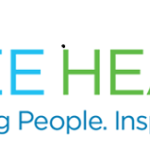 In my 20 years as a helping professional, I have led many discussions with colleagues and coworkers about addiction treatment, advocacy, recovery and prevention. In all this time and with so many advancements in other areas of wellness and prevention, one fact continues to amaze me – many people still think of addiction as a moral failing.
In my 20 years as a helping professional, I have led many discussions with colleagues and coworkers about addiction treatment, advocacy, recovery and prevention. In all this time and with so many advancements in other areas of wellness and prevention, one fact continues to amaze me – many people still think of addiction as a moral failing.The vast majority of physicians and nurses who I encounter – here and abroad – are insightful and caring people; and many of them face the universal, uphill battle of confronting the stigma of addiction. Many times, I want to say: “Just look at addiction treatment and prevention efforts in the United States and do what we do!” But that would be hypocritical, because as enlightened as we are in so many areas, most people in the U.S. still believe addiction is caused by some sort of existential dysfunction, not a brain illness.
The American Society of Addiction Medicine defines addiction as “a primary, chronic disease of brain reward, motivation, memory and related circuitry.” The National Institute on Drug Abuse (NIDA) defines addiction as a “chronic, relapsing brain disease” that changes the structure and functionality of the brain. So why do millions of people still think addiction is a moral issue? Why do we still refer to addicts and alcoholics as “meth freaks,” “drunks,” “junkies” and “crack heads?”
The answer is as simple as it is troubling – because that’s the way it’s always been. Addicts are scorned by communities, and the addicted celeb du jour is often hounded by paparazzi and exploited on reality television. And while the government purports to view addiction as a disease – as stated recently in the White House Office of National Drug Control Policy (ONDCP) – it often works in opposition to that position through the “War on Drugs,” terminology that portrays drug users like enemy combatants and less like patients.
Even those of us in the treatment community, consciously or unconsciously, use stigmatizing language, like the term “dirty” urine. The word “abuse” itself, which I’ll admit I’ve used often, has long implied the willful commission of some abhorrent, wrong or sinful act. Furthermore, to suggest through the word “abuse” that an addict is mistreating the object of his or her deepest affection is absurd. Addicts treat their pills and potions with great devotion and the utmost respect.
Despite widespread agreement that addiction is best understood as a complicated, bio-psychosocial scenario that requires treatment, our society is hard wired to prolong stigmatization, and stigma contributes to addiction’s lethality.
Addiction is the most significant health problem we face in the U.S., with an annual cost to our society of nearly $600 billion, according to NIDA. Yet, because of the stigma attached to it, many people are afraid to discuss addiction, let alone ask for help for themselves or their employee, student or child. This is especially true of children and parents, which should be troubling for those of us who spend countless hours spreading the message of prevention in our community.
So what’s the fix? There are several steps we can take to reduce the stigma of addiction. Learning and talking about addiction helps to raise awareness and break down the stigma associated with it. We can also strive to not judge people struggling with addiction. Remember that you are judging someone’s child, sibling, parent, spouse, relative or friend. Also, let’s try not to judge the family and friends of addicts. Addiction is an equal opportunity destroyer that can affect anyone. Stigma impacts us all and is perhaps the single largest contributor to addiction’s mortality rate.
The South Miami Hospital Addiction Treatment Center has treated thousands of people from around the world for nearly 40 years. The Center’s medical and counseling professionals provide intensive outpatient and residential addiction treatment, recovery, advocacy and prevention services to adults and adolescents in English and Spanish. A toll-free helpline is available 24 hours a day at 1-800-YES-HOPE (1-800-937-4679).

























